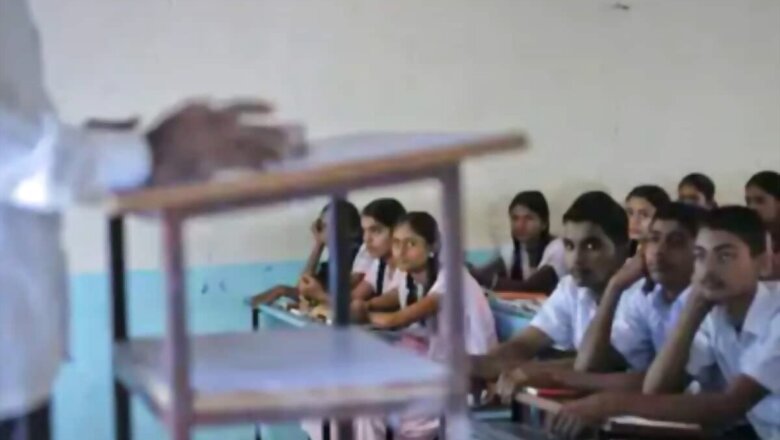
views
The Department Related Standing Committee for Human Resources Development (HRD) under the chairmanship of Vinay Sahasrabuddhe on Monday discussed the future of education in India in the midst of the coronavirus pandemic.
This was the first meeting of the committee since Sahasrabuddhe took over as chairman. Seventeen of the 30 members of the committee participate in this meeting. Those who attended included the secretaries of School Education and Higher Education, UGC Chairman, AICTE and CBSE officials.
The MPs were informed by the higher-ranking officers of the HRD ministry that there is no clarity in terms of when schools can resume, sources told CNN-News18. Educational institutions have remained shut since March due to the coronavirus impact.
The Secretary of School Education and the Secretary of Higher Education informed the panel that the call to reopen schools has to be taken by individual states depending on their own assessment of the pandemic and that a blanket decision cannot be taken, said the sources.
A number of MPs had raised the question of parents struggling with providing laptops for online classes.
Officers present in the meeting on Monday told the panel that they have been working on various media for online education and that suggestions are being received to employ community service radios and district newspapers to connect with students, added the sources. The officers said Andhra Pradesh's example of using IVR service to impart information needs to be duplicated.
Since giving laptops and mobile phones to students may not be feasible, MPs suggested giving them transistors instead, said sources. This move will be cost-effective and can be implemented easily even in rural areas.
According to sources, Secretary of Higher Education Amit Khare told the panel that 2020 will not be year of zero education, indicating education will be imparted in some way or the other and exams will take place for higher education.
Several MPs told the officers at the meeting about the feasibility of conducting online classes for children since parents on many occasions have complained about the lack of attention from children.
Top officers told the panel that the guidelines issued by the central government clearly state that no classes should be conducted for pre-primary, primary and up to classes 3-4. The guidelines also call for limited classes for classes 4-8 and full online classes for classes 8 and above. The panel was also informed that in case of pre-primary, primary and students studying up to class 3, there should be classes for parents as well.
There was also a discussion on reforms in education and how a system of adopting a question bank to assess the progress of a student, including during exams, can be a useful one, said the sources.
A few members also raised the issue of four students being denied mid-day meals during the coronavirus pandemic, to which an officer said its implementation is entrusted to the states and that the Centre has already directed all states to do the needful and will continue to stress that all states should provide some form of cooked food, dry ration or ration to the kids, said the sources.


















Comments
0 comment